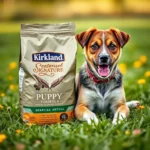
Introduction
Purpose of the Article
Proper nutrition is essential for maintaining your dog’s health and well-being. Just like humans, dogs require a balanced diet to thrive, and understanding the components of that diet is crucial for pet owners. This article will focus specifically on common fat sources in dog food, illuminating their importance and how they contribute to a dog’s overall health.
Brief Overview of Dog Diet
A balanced dog diet is composed of several key components: proteins, carbohydrates, fats, vitamins, and minerals. Each of these elements plays a vital role in your dog’s nutritional needs. While proteins and carbohydrates often take center stage in discussions about pet nutrition, fats are equally important but are sometimes misunderstood or overlooked.
Importance of Fats in Dog Nutrition
Fats serve multiple functions in a dog’s diet. They are a concentrated energy source, providing more than double the calories per gram compared to proteins and carbohydrates. Additionally, fats aid in the absorption of fat-soluble vitamins (A, D, E, and K) and are crucial for maintaining healthy skin and a shiny coat. Understanding the role of fats can help you make better dietary choices for your furry friend.
Understanding Dog Nutrition
Nutritional Requirements of Dogs
Dog nutrition varies based on several factors, including breed, age, size, and health conditions. Puppies, for instance, require a diet rich in protein and fat for growth, while senior dogs may need lower fat content to prevent obesity and related health issues.
Commercial dog food is often formulated to meet these diverse nutritional needs, providing a balanced mix of required nutrients. On the other hand, homemade diets can be tailored to suit individual dogs but require careful planning to ensure they meet all nutritional requirements.
The Role of Fats in Dog Nutrition
Fats can be classified into different types: saturated, unsaturated, and trans fats. It’s essential to focus on unsaturated fats, which are beneficial for your dog’s health, and to avoid trans fats, which can be harmful.
Essential fatty acids such as Omega-3 and Omega-6 are crucial for dogs. These fatty acids have several benefits, including promoting a healthy coat, supporting skin health, and aiding in joint function. Ensuring your dog receives adequate amounts of these essential fats can contribute significantly to their overall quality of life.
Common Fat Sources in Dog Food
Animal-Based Fat Sources
Meat Meals
Meat meals are concentrated sources of protein and fat derived from animal parts. Types of meat meals commonly found in dog food include chicken meal, beef meal, and fish meal. These meals are rich in nutrients and serve as excellent fat sources, providing essential fatty acids that support your dog’s health.
- Chicken Meal: Contains high levels of protein and fat, promoting muscle growth and energy.
- Beef Meal: A good source of iron and zinc, beneficial for overall health.
- Fish Meal: Rich in Omega-3 fatty acids, promoting healthy skin and coat.
Rendered Animal Fats
Rendered animal fats are another common fat source in dog food. These fats are obtained from cooking down animal tissues, which removes moisture and impurities. The quality of rendered fats can vary, so it’s essential to look for high-quality sources.
Premium dog foods often use high-quality rendered fats that maintain nutritional value, while lower-quality brands may use by-products that offer little nutritional benefit.
Plant-Based Fat Sources
Vegetable Oils
Vegetable oils are becoming increasingly popular as fat sources in dog food. They provide essential fatty acids and can enhance the palatability of dog food. Common types of vegetable oils include:
- Canola Oil: Rich in Omega-6 fatty acids, promoting a healthy coat.
- Sunflower Oil: Contains high levels of Vitamin E, which is beneficial for skin health.
- Coconut Oil: Known for its medium-chain triglycerides (MCTs), which can promote energy and may have anti-inflammatory properties.
Seeds and Nuts
Certain seeds and nuts also serve as valuable sources of fats in dog food.
- Flaxseeds: High in Omega-3 fatty acids, promoting heart health and a shiny coat.
- Chia Seeds: Rich in fiber and Omega-3s, beneficial for digestive health.
However, caution is advised when introducing nuts to a dog’s diet, as some, like macadamia nuts, can be toxic to dogs.
Fish Oil
Fish oil is renowned for its high content of Omega-3 fatty acids, particularly EPA and DHA. These fatty acids are beneficial for skin health, cognitive function, and reducing inflammation. Including fish oil in your dog’s diet can help alleviate issues like dry skin and joint pain, making it a popular supplement among dog owners.
Evaluating Dog Food Labels
Understanding Ingredient Lists
Reading dog food labels can be daunting, especially when it comes to understanding fat content. Look for the specific types of fats included in the ingredients. High-quality fat sources, such as fish oil or chicken fat, should be prominently listed. Avoid foods that list vague terms like “animal fat” or “meat by-products,” as these may indicate lower quality.
Nutritional Analysis
Conducting a nutritional analysis is essential for evaluating dog food quality. Look for foods that meet the Association of American Feed Control Officials (AAFCO) standards. These standards ensure that dog food provides balanced nutrition and meets minimum nutrient requirements.
Common Misconceptions About Fats in Dog Food
Myth: All Fats Are Bad
One common misconception is that all fats are harmful to dogs. In reality, fats are necessary for various bodily functions, and the key is choosing the right types. Beneficial fats can support energy, skin and coat health, and overall wellness, while harmful fats (like trans fats) should be avoided.
Myth: High Fat Equals Obesity
Another myth is that high fat in a dog’s diet leads directly to obesity. While fat is calorie-dense, a balanced diet that includes healthy fats, along with regular exercise, is essential for maintaining a healthy weight. It’s vital to provide appropriate portion sizes and monitor your dog’s overall diet.
How to Choose the Right Dog Food
Factors to Consider
When selecting dog food, consider your dog’s age, breed, size, and any existing health conditions. Puppies, for instance, need higher fat and protein content for growth, while senior dogs may benefit from lower fat options. Always consult with a veterinarian for personalized dietary advice.
Recommended Dog Food Brands
Several reputable dog food brands prioritize quality fat sources in their formulations. Here are a few to consider:
- Orijen: Known for high protein and fat content, using fresh and regional ingredients.
- Wellness Core: Offers grain-free options with high-quality meat and fish fats.
- Blue Buffalo: Features real meat as the first ingredient and includes wholesome fats like chicken fat.
Homemade Dog Food: Incorporating Fats
Benefits of Homemade Diets
Preparing homemade dog food allows you to control the ingredients and ensure your dog receives a balanced diet tailored to their needs. You can incorporate high-quality fats, ensuring your dog gets the best nutrition.
Suggested Fat Sources for Homemade Dog Food
When making homemade dog food, consider the following fat sources:
- Fish Oil: A great source of Omega-3 fatty acids.
- Olive Oil: Rich in healthy monounsaturated fats beneficial for heart health.
- Coconut Oil: Provides energy and may support immune function.
Sample Homemade Dog Food Recipe
Here’s a simple recipe to get you started:
Chicken and Vegetable Mix
Ingredients:
– 1 cup cooked chicken (diced)
– 1/2 cup brown rice (cooked)
– 1/2 cup carrots (shredded)
– 1/4 cup peas (cooked)
– 1 tablespoon olive oil
Instructions:
1. In a large bowl, combine the chicken, rice, carrots, and peas.
2. Drizzle with olive oil and mix well.
3. Serve warm and store leftovers in the refrigerator.
Conclusion
Understanding common fat sources in dog food is crucial for making informed decisions about your dog’s nutrition. Fats play an essential role in maintaining energy levels, promoting skin and coat health, and supporting overall well-being. By choosing high-quality fat sources and considering your dog’s individual needs, you can ensure they receive a balanced and nutritious diet that keeps them healthy and happy. Always consult with a veterinarian for tailored dietary advice to meet your dog’s specific needs.









